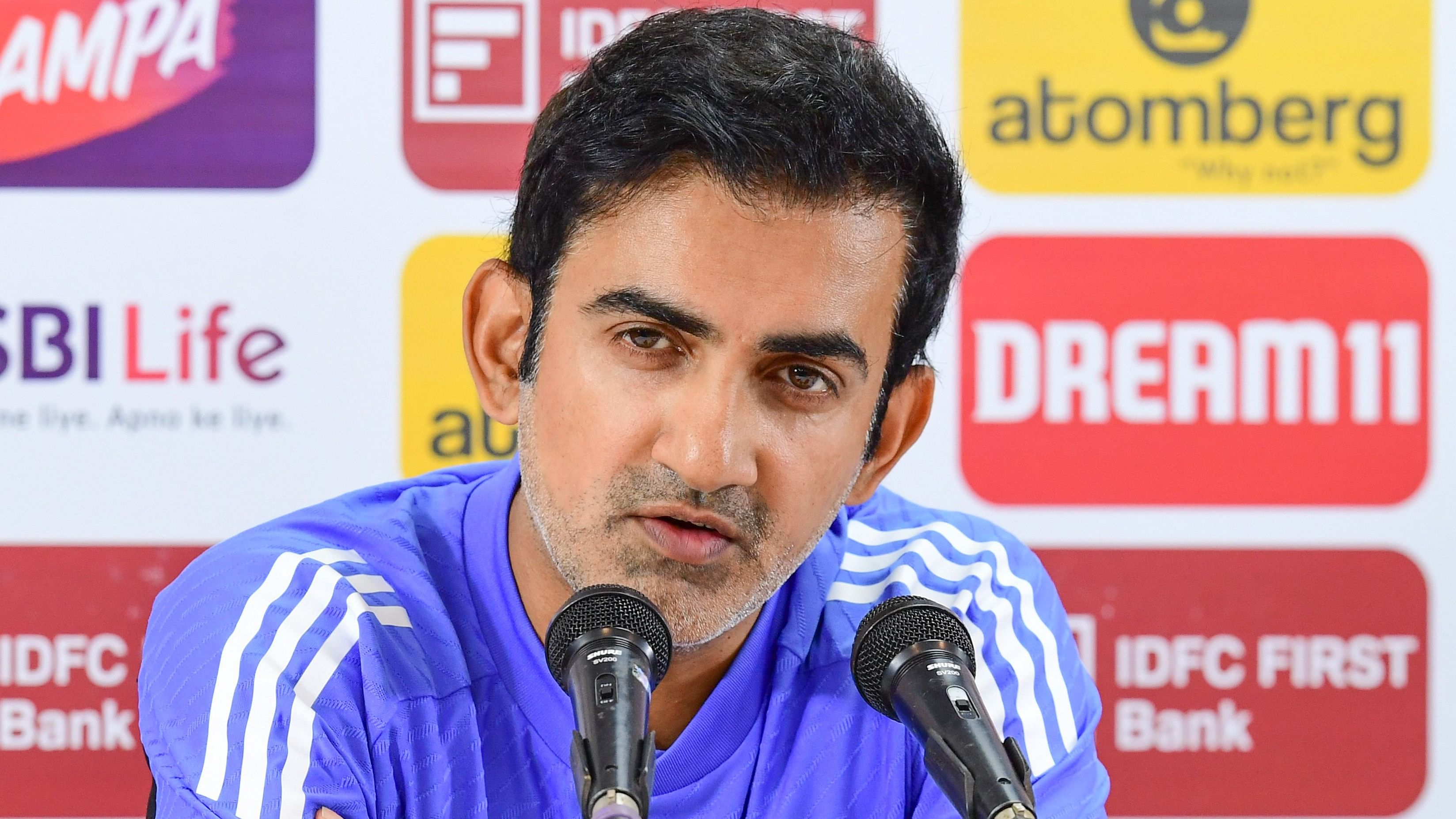
Indian cricket team head coach Gautam Gambhir speaks at presser at M Chinnaswamy Stadium on Monday
Credit: DH/S K DINESH
Bengaluru: From Ravi Shastri to Rahul Dravid, Indian cricket has witnessed an era of coaches speaking of aggressive cricket, and Gautam Gambhir is no exception to it.
Addressing a smattering of journalists, Gambhir went on the expected spiel about playing aggressively, and, on a refreshing note, added: “…there will be days when we'll get bundled up for 100 (runs) and we'll take it up.”
“If they can play the natural game, if they can get 400-500 runs in a day, why not? I have always maintained that cricket has to be played that way. And we will play it that way. High risk, high reward, high risk, high failure,” he said.
“That's how we want to play and that’s how we want to keep the game going forward. Keep taking the game forward and try and get the results in whatever situation we are in.”
This attitude was witnessed most recently during the second Test against Bangladesh in Kanpur where they won the game in little over two days.
“I had said in Chennai that we want to be a team that can make 400 runs in a day and bat for two days to draw. That's called growth. That's called adaptability and that's called Test cricket. If you play the same way, then it's not growth,” he sermoned.
“So, it's not like if we're in a situation where we have to play for two days to draw, we have a lot of individuals in the dressing room who can bat for two days. So, ultimately, the first motive is to win the match. And then the second or the last option is that if we're in a situation where we have to play for a draw, then that's the second or the third option.”
Given Gambhir’s typical us-versus-the-world mood, it was only natural then that he would come to the defence of the experienced batters who have not been at their best in recent times.
For example, Rohit Sharma hasn’t scored a century since the beginning of this year, and Virat Kohli hasn’t struck one since July 2023.
“See, you don't keep judging people after every game,” said Gambhir. “If you keep judging people after every game, that's not fair on them as well. It's a sport. People are made to fail. But more importantly, I think if we can get the results, if people are doing what is needed of them to get the results in our favour, that is fine. There will be times when some people will succeed, and some people will fail. But ultimately, if we keep judging everyone after every game, imagine how unfair that would be.”
“My job is to keep selecting the best playing eleven, not dropping anyone,” he added for good measure.
Once through, Gambhir, without any real provocation, entered a space of inspiring a change in narrative. “This is the time of the bowlers, and batsmen only set up matches. It is very important that our batsman-obsessed attitude ends,” he said in response to a question.
“If a batsman makes a thousand runs, there is no guarantee that he will win the Test match. But if a bowler takes 20 wickets, there is a 99% guarantee that he will win the Test match. So, whether it is a Test match or any other format, bowlers win you the tournament, bowlers win you the matches. So, I hope that in this era or this time, we will talk more about bowlers than batters. I hope that this mindset will change in the future.”